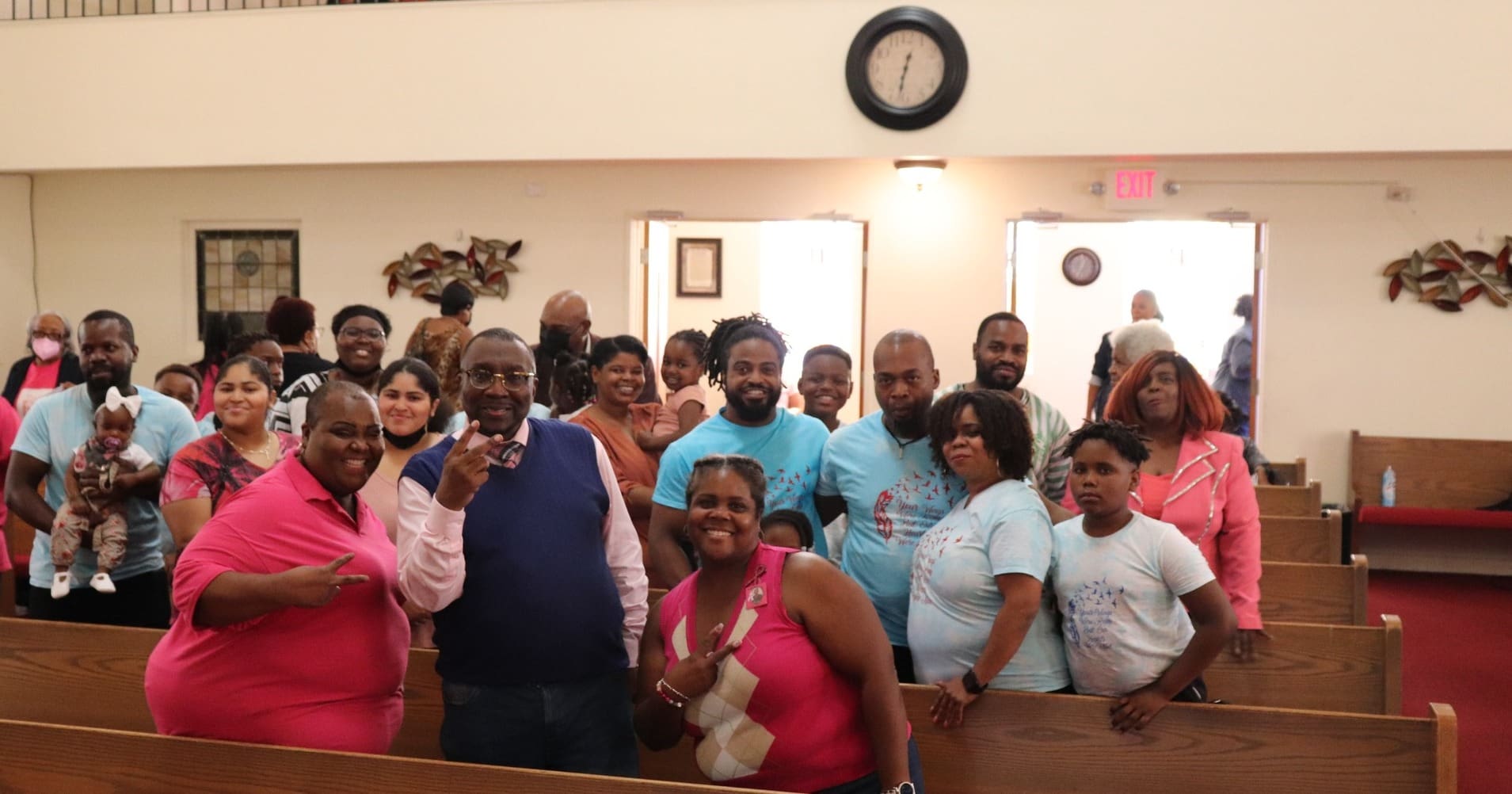As we journey through March 2025, it is essential to reflect on our evangelism efforts, ensuring they are rooted in purpose. Evangelism is about forming authentic relationships that thrive on meaningful connections as we share the Gospel of Jesus Christ. We live in a time where people find it very difficult to trust. Many have become skeptical due to past betrayals, broken relationships, and church hurt. I know how you feel, I have certainly felt the same way. But I have come to realize that a lack of trust can make forming authentic relationships even more difficult. Building relationships requires faith in God, as our faith gives us the courage to trust others, even when we feel vulnerable. When we focus on understanding people with our hearts, we create safe spaces for meaningful conversations. Many people struggle with being authentic often because of the fear of being judged or past experiences that made them feel unsafe for being their true selves. There is no special formula for building authentic relationships; rather, it takes prayer, love, care, connection, and communication. Let’s explore these principles that embody the power of authentic relationships:
Prayer Time: A strong prayer life is essential for evangelism. Before sharing the Gospel, I commit to prayer daily. My wife and I pray together each day, I lead a morning meditation and prayer session during the “The 5:00 AM Hour of Power” prayer line, every morning at 5:00 AM with participants from across the country. I also engage with my church, Morning Chapel CME, “The Rock Church,” in a prayer line every Tuesday and Thursday at 6:30 AM. Prayer is our sacred time to seek guidance and should be the foundation of our evangelistic efforts. Through prayer, we invite God’s wisdom and strength into our lives. Philippians 4:6 (NIV) reminds us: “Do not be anxious about anything, but in every situation, by prayer and petition, with thanksgiving, present your requests to God.” Prayer prepares our hearts, and evangelism is the outward expression of our faith as we share the good news with others.
Love: Love is a key component of evangelism. Mark 12:31 (NIV) states, “Love your neighbor as yourself. There is no commandment greater than these.” When we approach evangelism with love, people are more receptive to the message of Christ. Love builds trust, breaks down barriers, and opens doors for meaningful conversations. One way I express love for others is through encouragement. I make it a part of my daily routine to uplift those around me, even when it is not reciprocated. Love fosters connection and a sense of belonging. I recall a moment when our son, Kingston, now 20 years old, was only five. He described love as a feeling so powerful that the heart overflows and bursts into thousands of tiny red and pink hearts. His innocent yet profound explanation has stayed with my wife and me. It is a beautiful illustration of God’s love towards us, overwhelming and transformative!
Care: Demonstrating care means meeting people where they are, addressing their needs, and being present. Evangelism is more than words; it is lived out through acts of kindness, service, and compassion. True care is shown by listening, supporting, and uplifting others in times of need. A quote that resonates with me is: “People don’t care how much you know until they know how much you care.” When people sense that we genuinely care about them, they are more likely to trust us. Galatians 6:2 (NIV) instructs us to “Carry each other’s burdens, and in this way, you will fulfill the law of Christ.” By showing care, we create opportunities for evangelism, as people are more willing to listen when they feel safe and valued.

Connection: Establishing strong connections with others enhances the impact of evangelism. As a connector, I enjoy fostering relationships and bringing diverse groups of people together to develop authentic connections. I intentionally create spaces where individuals feel safe to ask questions, express concerns, and explore their faith. True connection fosters long-lasting discipleship and spiritual growth. Making connections allows me to learn about others—their interests, experiences, and perspectives. People appreciate when we take a genuine interest in who they are. Jesus emphasized relationships when He sent His disciples out in pairs. Luke 10:1 (NIV) states, “After this the Lord appointed seventy-two others and sent them two by two ahead of him to every town and place where he was about to go.” Partnering in ministry provided encouragement, accountability, and strength during difficult moments.
Effective Communication: Being a good pastor requires intentional communication, including preaching the Gospel, praying, counseling, offering support, and encouraging others. In ministry and evangelism, effective communication is essential because it fosters connections, builds trust, and nurtures spiritual growth. It is a skill that develops over time, and the way we communicate plays a crucial role in sharing the Gospel and engaging in meaningful conversations. People learn to communicate through experiences, learned behavior, observation, and interaction. Our words and listening skills have a profound impact on those around us, especially in ministry and personal relationships. Scripture provides guidance on communication, James 1:19 (NIV) reminds us to be “quick to listen, slow to speak.” This principle is significant in evangelism, as truly listening helps us understand others’ needs and respond with compassion. Personal testimonies are also a powerful way to communicate the Gospel. I encourage you to share your story with someone, and then listen attentively to their response. It may be exactly what they needed to hear.
A Call to Action
As followers of Christ, we are entrusted with the Great Commission to make disciples of all nations (Matthew 28:19). This month, I encourage you to embrace authentic relationships through prayer and action. Here are some practical steps to take:
• Pray for Guidance – Begin each day by asking God to lead you to opportunities for connection and sharing His love with others.
• Be Intentional in Conversations – Listen actively, ask meaningful questions, and show that you genuinely care.
• Encourage and Uplift Others – Share words of encouragement, send a thoughtful note or card, or offer a kind gesture.
• Practice Radical Hospitality – Open your home, share a meal, and create safe spaces where people feel safe and valued.
• Serve Others – Demonstrate God’s love through acts of service, volunteering, mentoring, or being present for someone in need.
• Share Your Testimony – Boldly share how God has worked in your life and the blessings He has given you. Then, simply be a listening ear.
• Be Consistent – Authentic relationships require ongoing effort. Check on others, pray for them, and walk alongside them in their faith journey.
By cultivating these principles, we can embrace authentic relationships and share the love of Christ in a way that both evangelizes and transforms lives.




